10 Practical Tips for First Time Gardeners That You Need to Know
This post may contain affiliate links. Read our disclosure policy here.
Ready to start a garden for the first time? I know it can be overwhelming! Here are some practical tips for first time gardeners that you should know.
10 Practical Tips for First-Time Gardeners
The gardening season is almost upon us and perhaps this year is your first time planting a garden. Growing your own garden can be a wonderfully enjoyable thing to do, even if you do have a few weeds to pull. But it can also be a little bit confusing when you first get started or even a little disheartening if you aren’t sure how to get things set up. If only it were as easy as just planting seeds and watching yummy things grow!
Tips for First-Time Gardeners
Never fear! If you are a first-time gardener and you have some questions before you get going, this is an article for you. Hopefully, after you finish reading this you will feel a little more empowered and ready to get your hands dirty this gardening season.
1. Dream big, but not too big.
“But the seed packets are so small!” You exclaim as you add 10 different varieties of lettuce to your cart at the store. While the seed packets may look small, they usually contain between 20 and 300 seeds each, depending on the variety.
If you are just starting out, stick with only one variety of each veggie or fruit that you are planting. You may not even end up planting all of the seeds in the packet that you buy depending on your space available.
2. Go for tried and true.
Find a crazy, exotic-looking plant that you are drooling over? Save that one for next year. Use your first year gardening as a learning experience, not a total experiment. Good beginning vegetables are:
- Blue Lake Bush Beans
- Black Beauty Zucchini
- Early Girl Tomatoes
- Lettuce (almost any kind)
- Nantes Carrots
3. Pay attention to your zone.
Growing bananas might be fun but if you live in North Dakota, it’s probably not very realistic or practical. When selecting garden seeds, always keep your zone in mind in the back of your head.
Select plants that grow well in warm conditions if you live in the south and plants that grow well in a shorter season if you live in the north. Most seed packets will tell you the best conditions for growth on the back of the packet, so pay attention when you are choosing your varieties.
4. You may not be able to grow it all in the ground.
Here in the north, I’m unable to start tomato seeds directly in the ground. I can easily grow tomatoes here (with bushels of extras!), but I have to either start them inside a few months ahead of planting them outside, or I have to purchase them at a local greenhouse. Depending on the zone you are growing in and your weather conditions, you may not be able to grow all seeds by directly planting them in the ground.
Be sure and check the growth times on the seed packet to see how long it takes for the veggie to mature and then learn the average number of growing days for your area. If you don’t have enough time to grow the plants, buy them as a started plant at a greenhouse instead.
–You can also grow your own plant starts, here’s how.
5. Stay small.
Even if you have a large area to plant. Keep your garden small the first year. This will give you plenty of time to get to know your garden and the plants you have in it without feeling overwhelmed by the responsibility.
It will also give you time to learn best garden practices and figure out how you are going to do the watering, weeding, caring for the soil, and the other fun chores that come along with having a garden.
6. Make gardening friends.
Everyone will have their opinion about how to grow a garden, but when you find an experienced gardener that is willing to give you advice…listen. Information on gardening in your specific area in your specific soil can be difficult to find on the internet.
Finding a local gardener that is willing to help you along the way can be the best thing you do for your garden this year, or next year, or for the future of your gardening endeavors.
7. Have a plan and take notes.
Since this is your first year gardening and your entire garden is one large experiment for you, be sure and keep good documentation about what you plant, what you did to your garden and anything else that may help you with your gardening plans for next year.
If you aren’t sure where to start or need a good place to record all of this, my Gardening and Preserving Journal can be an excellent resource. After you’ve filled it out for this year, keep it on your shelf as a reference for next year so that you can create a bigger and better garden.
8. Plan your gardening style.
Are you going to grow directly in the tilled ground? Or maybe in containers? Or perhaps you love the look of a raised bed? Where you put your garden will determine how much space you will have to grow things, now and in the future.
It’s a big decision and hard to change so be sure and do your research first. I have always had a garden directly tilled in the ground until 2017. We finally decided to create raised beds to help keep down the weeds by minimizing garden space. It cost more money to make raised beds but we believe the payoff will be worth it in the long run.
9. Don’t feel like you have to break the bank.
It seems like whenever you walk into a greenhouse or garden center there are a million different gardening items that are all very shiny and look very appealing. The employees may lead you to this and that, telling you how much it will improve your garden.
But honestly, the most important things you need to garden are some good seeds and good soil. (Weather is important as well but we can’t control that!) If you are on a limited budget, you can improvise with what you need and make things like Weed Killer, Pest Control Spray, and Garden Fertilizer yourself. For more advice in this area, check out my article on Ways to Save Money Gardening.
10. Enjoy your gardening.
If you feel like gardening is going to be highly stressful for you, or if you plan on planting too big of a garden that will be difficult to maintain, gardening may not be worth it. Or you may need to find a happy medium between gardening and buying from a local farmer’s market.
Gardens can get out of hand very quickly and it’s very sad to watch your fruits and veggies go to waste because you are unable to find the time or even the strength to tend to what you planted. Gardening can be so enjoyable if it’s done in a laid back way.
Your first garden isn’t the one that is going to produce 100% of the food to get your family through the winter, but it can be a wonderful learning experience where you gain the skills to eventually be able to do that sometime in the future.
Enjoy your garden this year! Enjoy watching the green shoots come up from the earth. Enjoy picking fresh peas with your little ones and eating them all before you make it back to the house. Enjoy this season of gardening, because before you know it…winter will be here again and we will be longing for the fresh garden greens once more!
Need more tips? I have plenty for you here on my Gardening Page!
Seasoned gardeners, do you have other tips for first-time gardeners? Share below! First-time gardeners, share with us what you are planting and what your struggles are. This is a great community and we are happy to be your gardening friends!
This article with Tips for First Time Gardeners was originally posted on Little House Living in April 2017. It has been updated as of April 2020.

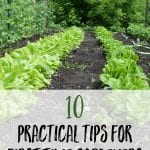
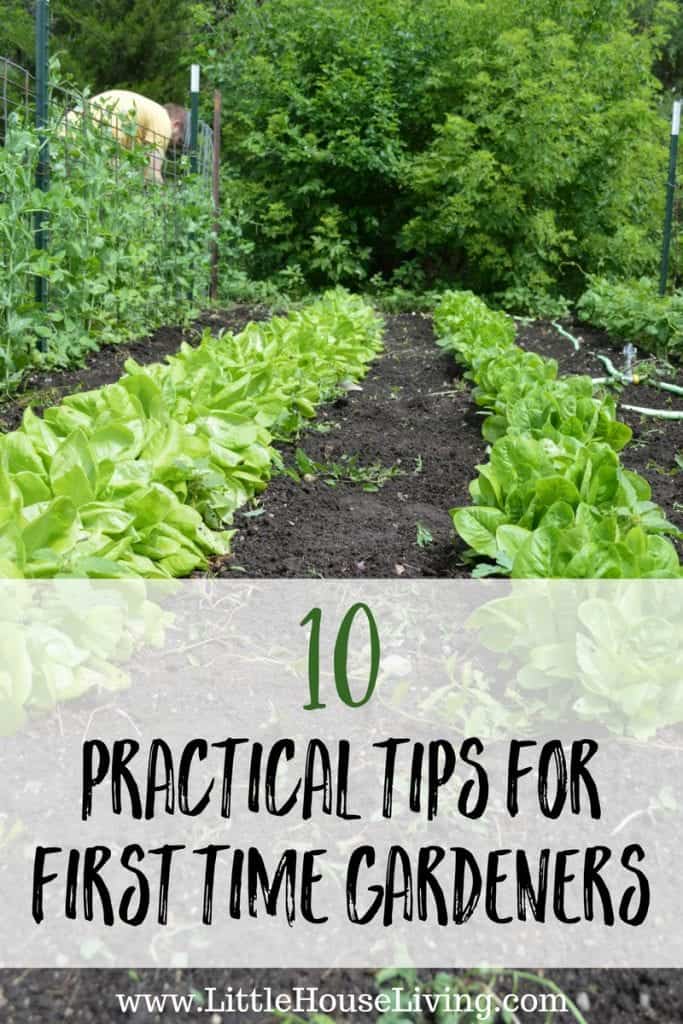
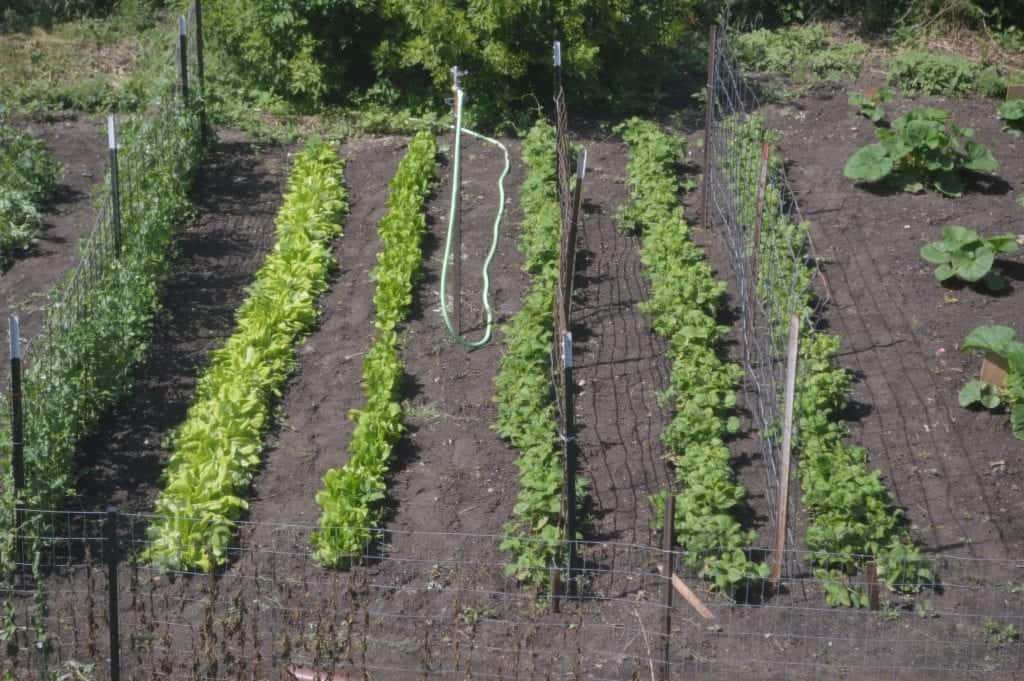
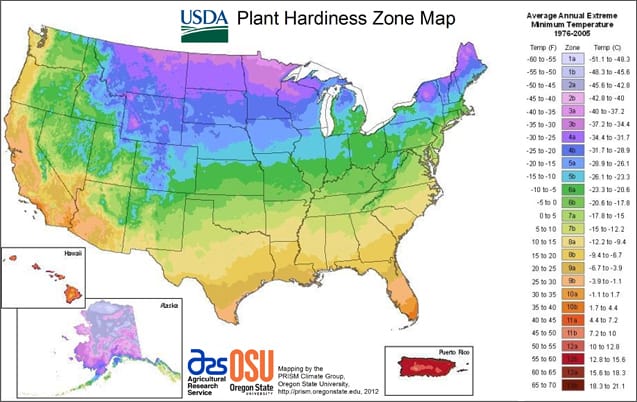
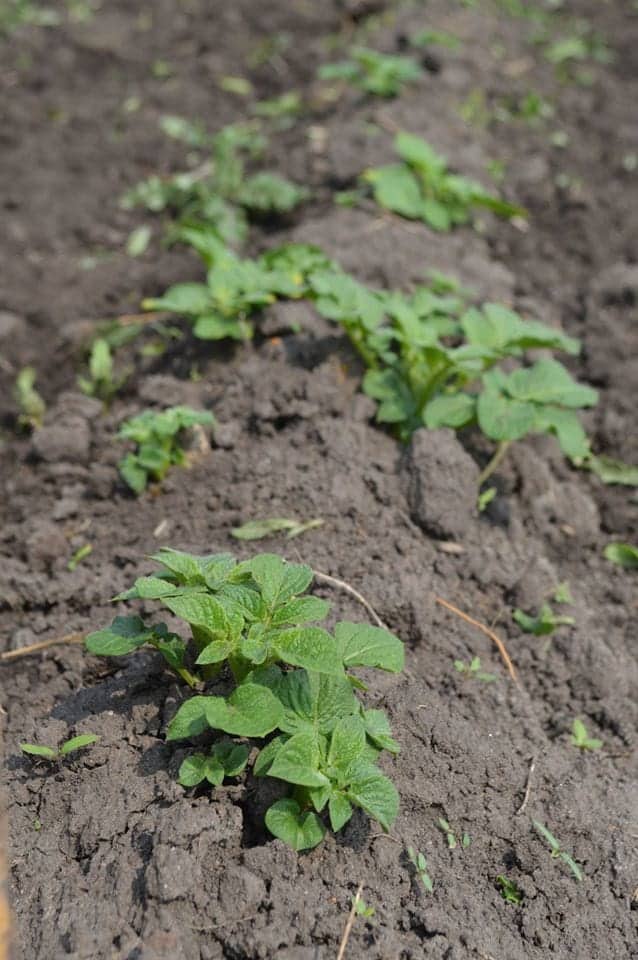
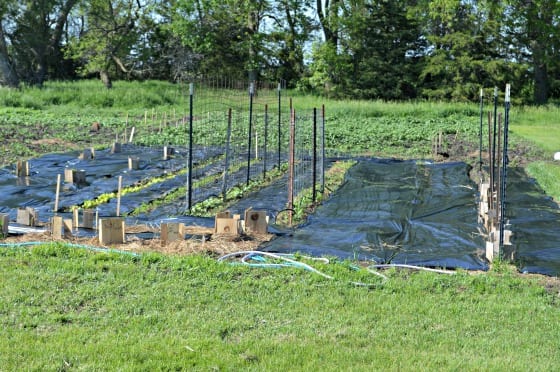


How many and what are the best producers of Tomatoes should I get to be able to put up marinara sauce and other tomatoe uses?
For any kind of tomato canning I love the paste varieties. A good roma (such as Amish Paste) grows easily and produces a good amount. Another favorite of ours is the San Marzano. Very large and meaty so it makes great thick sauce!
Always welcoming advice on gardening. I for two yrs put in an acre & a half garden with really stunning results. I spaced my rows 3 1/2′ apart. So I could keep tilling close to the plants. Befor I planted I had 8 yr. Old sheep manure, I put 5 heaping S-10 truck loads on the garden right after I plowed & disc. Then with a 4 foot pull behind tiller attachment I started working it all in. Long story! My cabbage was worm free, big as basketballs. Sweetcorn was very big too. Radishs were huge & not pithy I had a bumper crop for two years. In the mean time once a month I sprayed miracle grow in everything. Tomato’s, greenbeans were full. Best garden I ever had. I say the sheep manure helped alot. But it was 8 yrs old not fresh. Thank you for the tips. That stories is my tip to you also. Thank you.
Wanted to add, I stopped fertilizing 25-30 days befor harvesting. I did used powdered worm/bug deterrent up till month befor harvest. Except for my corn I followed dirrection
This is a great article–wish I had read it many years ago! After a few years of not-so-great gardening in the ground, we now do a hydroponic garden, which we love. Taking notes is an excellent idea. I use my notebook every year so I know what seeds worked out the best both plant health and yield of vegetables. It really helps me the next season when I’m deciding if I want to try new varieties of veggies. Even though it was only a year ago I surely don’t remember exactly how it all turned out I just know we ate it and loved it all.
Love your blog and have tried several recipes–so good!
I love that you are using the weed blocker. I don’t know how many years I put nothing between my rows – all that extra weeding! It took having my kids to get me to realize the time I could save by doing a weed blocker of some sort between rows (cardboard works great too). Great advice for beginning gardeners and a good reminder for this expecting Mama – I don’t NEED to go huge this year just because my belly is 😉